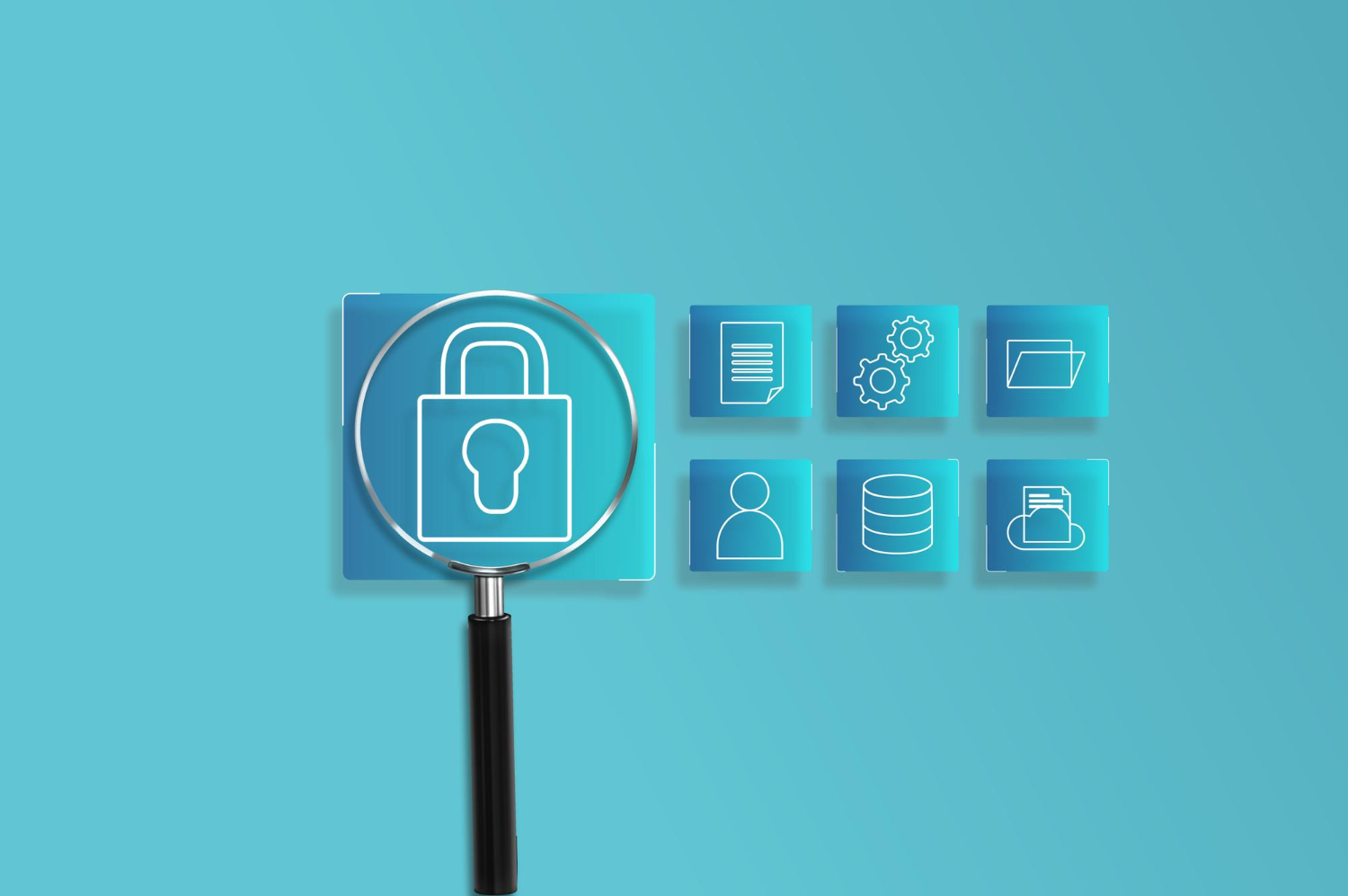Blog
📋Introducing KayanHR's Pre-Hiring Checklists
Hiring the right candidate is never just about posting a job and sending an offer. There’s a lot that happens before the offer letter is even drafted. And now, we’re making that part of the journey smarter, faster, and more organized. Say hello to Pre-Hiring Checklists, a new feature designed to help HR teams streamline the pre-employment process with customizable, structured checklists built for real-world hiring needs. 🔍 What Is the Pre-Hiring Checklist? The Pre-Hiring Checklist is a structured process that allows HR teams to gather all the critical information and documents needed before onboarding begins. Whether it’s confirming a candidate’s ability to relocate, verifying legal documents, or obtaining early signatures on important forms, this feature gives recruiters full control of the pre-hiring phase. ✨ Why It Matters Many hiring delays and missteps happen before a candidate even joins the company. Information gets lost in email threads. Key documents are forgotten. Eligibility checks are skipped. With Pre-Hiring Checklists, all this is collected in one organized, consistent, and customizable place. 🚀 How This Feature Benefits the Saudi Job Market In Saudi Arabia, where digital transformation is accelerating and competition for talent is increasing, these checklists help companies ensure compliance with official regulations, support Saudization efforts, facilitate both local and international hiring, speed up onboarding for major projects like NEOM and Qiddiya, and improve candidate experience while maintaining a professional image in the local market. 💡 Key Highlights 📋 Customizable Checklists for Every Role Create and save different checklist depending on the job type, department, location, or even hiring policy. Whether hiring locally or internationally, you can tailor the steps to fit your needs. 📂 Documents to Upload Ask candidates to upload important documents, such as: 1) Passport or ID 2) Academic certificates 3) Residency or work permits This ensures you have everything needed to assess their readiness before moving forward. 🖊 Documents to Sign Obtain early approval on vital pre-employment forms, including: 1) NDAs 2) Remote work or relocation agreements 3) Policy acknowledgments 🔄 Seamless Data Transfer to Employee Profile Once a candidate is officially hired, all data collected during the pre-hiring phase automatically reflects in their employee profile, no need to re-enter anything. 🕒 Flexible Timing Need to run pre-hiring checks before an offer? Or prefer to do it after the offer is accepted? You choose the timing. The feature adapts to your hiring flow. 🎯 Strategic Value for HR Teams With this feature, you can: 1) Standardize the hiring process across teams 2) Reduce risks by reviewing candidate information early 3) Speed up onboarding by collecting essentials upfront 4) Improve coordination between recruiters and HR 🚀 Ready to Upgrade Your Hiring Journey? Pre-Hiring Checklists are more than just forms, they are a strategic tool to help your team make confident, informed, and compliant hiring decisions. No more missed steps. No more scattered information. Just smooth, structured hiring from day one; or better yet, before day one. Try the new Pre-Hiring Checklists today and take full control of your hiring process. 🧠 Because exceptional hiring starts before the offer is even sent.
Released On August 13, 2025

KayanHR × Nafath: A New Chapter in Workforce Innovation🚀
KayanHR has officially partnered with Nafath (نفاذ) — Saudi Arabia's trusted national digital identity platform — in a transformative integration that revolutionizes how organizations in KSA manage and verify their workforce. This strategic partnership marks a significant leap toward secure, intelligent, and seamless HR operations, perfectly aligned with Saudi Vision 2030. 🔍 Instant Identity Verification, Simplified Say goodbye to paperwork delays and embrace real-time, government-backed identity verification. With KayanHR's direct integration with Nafath, HR teams can: • Instantly authenticate employee credentials • Strengthen liability protection • Accelerate onboarding processes • Eliminate manual errors • Operate with complete confidence 🛡️ Built for Compliance. Backed by Security In an era of evolving labor laws and stricter data privacy requirements, this integration serves as your compliance partner. ✔️ Comprehensive audit trails ✔️ Secure verification processes ✔️ Full alignment with local regulations KayanHR keeps you ahead of the curve, confidently and effortlessly. ⚙️ One Platform for All Verification Needs Whether you're onboarding a single hire or verifying hundreds of employees, KayanHR adapts to your workflow: • Execute single or bulk integrations seamlessly • Customize processes to match your HR operations • Save valuable time without sacrificing accuracy Experience flexibility and operational integrity at scale, exactly what modern HR demands. 🌐 Powering the Digital Future of Work This partnership transcends simple integration. It represents transformation. By connecting with Nafath, KayanHR is building a future where: • Trust forms the foundation • Efficiency becomes the standard • Security remains non-negotiable Together, we're not just adopting digital transformation, we're pioneering it. 🧾 About Nafath Nafath (نفاذ) is a national digital identity initiative led by the National Information Center (NIC) under the Ministry of Interior (MOI) in Saudi Arabia. Mission: To provide a secure and unified digital identity system for citizens and residents, creating digital equivalents of physical identification. 🌍 Key Capabilities • Self-service registration and credential management • Online identification, authentication, and PKI-based digital signing • Authentication-level-based federation services • Comprehensive digital ID management for service providers • Identity validation and automated user provisioning With a target reach of 60 million users, Nafath represents the future of digital trust in Saudi Arabia. 🔁 Transform how your workforce operates ! Experience the future of HR with KayanHR × Nafath.
Released On June 12, 2025

HR Strategies to Boost Staff Mental Health💼
In today's rapidly evolving workplace, employee mental health has emerged as a critical determinant of organizational success. As businesses navigate increasing pressures, technological disruption, and changing work models, forward-thinking HR departments are implementing innovative strategies to support psychological wellbeing. This article explores comprehensive approaches for cultivating mentally healthy work environments that benefit both employees and organizational performance. 🧭Before we begin, here’s your roadmap through the article: 1)The Strategic Importance of Workplace Mental Health 2)Practical Ways to Enhance Mental Health in the Workplace 3)Addressing Core Psychological Challenges 4)HR's Strategic Role in Organizational Transformation 5)Conclusion 🧠The Strategic Importance of Workplace Mental Health Mental health has become a cornerstone of organizational success in today's business environment. Employees with good mental health demonstrate better performance, stronger commitment, and contribute to positive workplace culture. Research shows organizations prioritizing mental health see up to 25% productivity increases and 30% lower absenteeism rates, transforming mental health investment from an optional benefit to a strategic imperative. In the organizational context, mental health represents a comprehensive state of wellbeing enabling employees to realize their potential, manage professional pressures effectively, and maintain high productivity levels. It manifests through job satisfaction, effective stress management, positive workplace relationships, and sustainable work-life balance. 🔑Practical Ways to Enhance Mental Health in the Workplace ✅ Provide a Safe and Supportive Environment Create a space where employees feel comfortable expressing their feelings. ✅ Flexibility in Working Hours Offering flexible options helps reduce stress and improve work-life balance. ✅ Encourage Break Periods Short breaks boost focus and reduce fatigue. ✅ Support a Culture of Open Dialogue Encourage open communication and safe sharing of challenges. 💡Addressing Core Psychological Challenges 1) Burnout Management Burnout represents severe physical and emotional exhaustion from prolonged work pressure. Effective strategies include workload analysis and redistribution, alternating intensive work periods with strategic breaks, and early intervention programs. 2) Occupational Anxiety Solutions Work-related anxiety stems from job insecurity and rapid workplace changes. Organizations can address this through transparent communication about organizational direction, continuous professional development opportunities, and clearly defined career pathways. 3) Combating Social Isolation Particularly relevant in remote work environments, social isolation damages organizational belonging. Counter-strategies include regular virtual social gatherings, hybrid work models balancing remote flexibility with in-person connection, and dedicated platforms for informal communication. 💡HR's Strategic Role in Organizational Transformation Human Resources contribute to paving the way for any organizational transformation by training employees and developing their skills, building a flexible organizational culture, and supporting leaders in managing change. They also play a pivotal role in enhancing communication and creating an environment that encourages growth and development. Successful transformation relies not only on plans and strategies but also on those who implement them. Human Resources ensure that everyone is prepared for this change. ✨Conclusion Mental health has evolved from a peripheral concern to a fundamental pillar of organizational strategy. A comprehensive approach requires sustained commitment across all organizational levels. Forward-thinking organizations recognize that investing in mental health represents both an ethical responsibility and a business imperative for sustainable success in an evolving work environment. Organizations that prioritize developing employee wellbeing alongside financial objectives will establish themselves as leaders in the contemporary workplace.
Released On May 19, 2025

The Story Behind Labor Day and How KayanHR Builds on It
Labor Day isn't just a date on the calendar, it's a story of resilience. Back in 1882, workers marched for dignity and fairness. Today, HR has evolved with empathy, data, and people-first tools at its core. As we celebrate progress, we also reflect: how does the spirit of that first march live on in modern workplaces? From Protest to Progress The origins of Labor Day trace back to a watershed moment in 1882, when thousands of workers marched through the streets of New York City. These individuals; carpenters, masons, tailors, and laborers from every trade, sacrificed a day's wages to advocate for what many now consider basic rights: 1)Reasonable working hours 2)Safer conditions 3)Fair compensation This demonstration, which would later be recognized as the first Workers' Day parade, marked the beginning of a transformation in employer-employee relations. The participants could hardly have anticipated how their actions would catalyze a movement that would eventually be commemorated throughout the world. The significance of this event extends beyond its historical context. It represents a fundamental shift in how societies value their workforce, acknowledging that organizational success and human dignity are inextricably linked, not competing interests. Labor Day in the Arab World While Labor Day (May Day) has become universally recognized, its manifestation in the Arab world has evolved with distinct regional characteristics: 1)May 1st, International Workers' Day, is observed across the Middle East and North Africa 2)The commemoration reflects the unique economic and cultural landscape of the region 3)May Day serves as more than a ceremonial holiday In countries throughout the Arab world, May Day represents an ongoing dialogue about worker rights and responsibilities within economies that are rapidly modernizing while maintaining cultural authenticity. The celebration acknowledges distinctive regional challenges: •Balancing technological advancement with traditional values •Adapting global best practices to local contexts •Creating sustainable employment opportunities in diverse economic environments Unlike Western observances that often emphasize leisure, Labor Day celebrations across many Arab nations focus on active engagement with labor policy development and workplace improvement. This approach reflects a pragmatic understanding that prosperity depends on thoughtfully constructed employer-employee relationships that honor both productivity and human welfare. Regional business leaders have increasingly recognized that the Arab world's approach to labor relations must be developed indigenously rather than imported wholesale from other markets, a perspective that acknowledges both universal principles and local realities. What Labor Day Means at KayanHR? At KayanHR, the principles underlying this day inform our operational philosophy throughout the year. Our name itself, "Kayan" (كيان) meaning "entity" or "being" in Arabic, reflects our foundational belief that organizations and their workforce constitute an integrated whole rather than separate, occasionally opposing forces. Our Three Essential Principles 1.Human Dignity First •Workforce management is fundamentally about human dignity •Systems designed to enhance the experience of each individual •Every feature begins with: "How will this honor the contributions and potential of the people it serves?" 2.Sustainable Productivity •Sustainable productivity emerges from environments where employees can excel •Solutions focus on creating workplaces with meaningful recognition, clear communication, and genuine opportunity •Research consistently links these factors to both individual fulfillment and organizational performance 3.Technology as Enhancement •Technology should augment human capabilities rather than diminish human involvement •Digital HR solutions streamline administrative processes specifically to create space for interpersonal connections •Strategic thinking that technology cannot replicate is prioritized Conclusion At KayanHR, we view ourselves as stewards of this evolving tradition, translating timeless principles of human dignity and fair exchange into contemporary systems that serve the complex needs of modern organizations. We recognize that the most successful businesses are those that honor both their commercial objectives and their human obligations. As we observe another Labor Day, we invite organizations throughout the region to consider how their workforce management practices might better reflect the spirit of this commemoration; not as an annual observance but as a daily commitment to building workplaces where both businesses and the people who power them can thrive together.
Released On April 23, 2025

What is Employee Management Software and Why You Need It
Say goodbye to clunky systems and hello to seamless workforce management—innovation is no longer optional, it’s essential ! In today's ever-changing business landscape, organizations are leveraging technology to efficiently manage their most precious asset: their employees. Leading the way is Employee Management Software (EMS), which integrates with the best HR management solutions to boost productivity, improve employee engagement, and ensure labor law compliance by automating tasks like performance reviews and attendance tracking. HR staff can focus on creating a productive environment and growing the business by using EMS to save time. Features of Employee Management Systems Employee Management Systems (EMS) have been designed to improve the efficiency and timeliness of HR departments' daily activities. By automating important activities, EMS enables organizations to focus on what matters most: supporting their teams and developing the organization. Here are some of the important features: Attendance and Time Tracking: EMS handles attendance monitoring automatically, integrating seamlessly with payroll systems to guarantee precise payment for each hour worked. This helps with getting rid of human timesheets and reducing the possibility of inaccuracies and confusion. At KayanHR, our perspective on attendance management goes beyond tracking time—it’s about optimizing efficiency. Our Time Attendance Solutions offer real-time monitoring, AI-enhanced rules, and geofencing, all integrated smoothly with payroll for maximum accuracy and transparency. Explore how we can enhance your operations on our Time Attendance Solutions page. Payroll Management: EMS makes payroll management easier by automatically computing wages, deductions, and taxes while guaranteeing adherence to regional laws. Nevertheless, Payroll management can be a challenging task due to the reason that it needs a high level of accuracy and punctuality. Performance Management: EMS helps businesses make sure workers are motivated and hitting their goals by providing tools for monitoring employee performance, setting objectives, and conducting assessments. Leave and Absence Management: EMS makes it simple to keep track of vacation, sick leave, and personal days. Therefore, HR departments can easily monitor staff availability and discover who is absent. Employee Engagement Tools: Many EMS platforms feature built-in tools to increase employee engagement, including feedback surveys, recognition programs, and easy communication channels, all of which are intended to keep staff engaged and energized. KayanHR increases this by providing a fully integrated suite of engagement solutions on a single platform. Real-time feedback surveys, personalized recognition programs, and efficient communication channels enable HR departments to better engage with employees. By combining these important aspects, KayanHR ensures that organizations can provide a consistent and dynamic employee experience. To learn how KayanHR can help your engagement strategy, visit KayanHR's website and browse features section. Reporting and Analytics: HR professionals can access comprehensive reports and analytics using EMS, which equips them with the background information needed to make more informed, fact-based decisions. Benefits of Using Employee Management Software Employee Management Software (EMS) is packed with powerful features that refine HR. Here's how it delivers game-changing results: Powered Workforce Management with Automated Procedures: Employee Management Software automates operations like attendance monitoring and payroll, saving HR teams time and reducing blunders. Improved Decision-Making and Compliance using Data Analytics: Using the greatest HR management solutions, EMS guarantees compliance by precisely collecting personnel data. Its data analytics capabilities give HR real-time information, enabling more informed decision-making and strategic planning. Improved Interaction with Employee Engagement and Tracking Software: Employee monitoring software monitors performance, whereas employee engagement software improves morale through tools such as feedback surveys and recognition programs, resulting in increased motivation as well as efficiency. Scalability and Flexibility: As your business grows, EMS can quickly adapt to meet new demands. Whether you're hiring extra staff or expanding to new locations, your business has the flexibility to meet your changing demands. Streamlined Recruitment and Onboarding: EMS accelerates the hiring process by organizing everything from job advertisements to applications. It also automates onboarding, allowing new employees to get up to speed quickly. How to Choose the Best HR Management Tools One of the most important steps in improving your company's HR operations is choosing the appropriate employee management software. With so many choices, it's essential to choose the tools that most effectively suit your particular business requirements. Here’s what to consider: Scalability: Your company will not remain the same size indefinitely, so choose software that can expand with you. Look for tools that can handle a growing workforce and adapt to new requirements while maintaining performance. We at -KayanHR- believe in empowering your growth. Our suite of scalable tools is designed to support your expanding workforce and evolving needs, from hiring the best talent to enhancing performance. Visit KayanHR's website and see how our solutions can grow with you. Intuitive Interface: A user-friendly system is essential for smooth integration throughout your firm. The best HR management systems have simple, intuitive interfaces that reduce the learning curve for both HR personnel and employees. Robust Integration Capabilities: The ideal software should integrate effortlessly with your existing tools, such as payroll, employee engagement, and time-tracking software. Strong integration capabilities save time and eliminate data silos. Customizable Features: Because each company has unique demands, flexibility is essential. Choose software that allows you to customize features such as reports, workflows, and notifications to match your operations. Reliable Support and Security: Choose a tool backed by excellent customer support and strong data security measures. HR systems handle sensitive employee information, so security should be a top priority. To sum up, Employee management software is now a need for companies hoping to prosper in the fast-paced world of today, rather than a luxury. EMS directly supports organizational success by improving employee engagement and expediting HR procedures. Investigating cutting-edge staff tracking and engagement software options that can increase productivity, raise morale, and motivate performance is crucial as organizations expand. Set your company up for success by adopting the workforce management of the future now.
Released On January 28, 2025

Employee Management: Where Business Success Begins
What separates good companies from great ones? The answer lies in how they manage their employees. What’s the glue that keeps successful companies together? It’s more than simply vision or strategy; it’s how they manage their employees. The importance of employee management cannot be overstated—it’s the lifeblood of any successful firm, the invisible link that ties individual effort to group success. Without it, even the brightest talents might feel adrift, and the best ideas can fail. But with effective employee management, teams thrive, innovation blossoms, and goals become a reality. Let’s look at why personnel management isn’t just important—it’s essential. The Importance of Employee Management What turns a workplace from average to extraordinary? Employee management plays an important role in achieving harmony, productivity, and growth. It is the driving force behind an organization's operations, ensuring that every person feels empowered to contribute their utmost. Effective personnel management fosters workplace harmony by encouraging collaboration. Studies show that well-managed teams are 21% more productive and create higher-quality results. Completing the task is not enough; it must also be done with purpose and alignment. When employees are properly managed, they are more than just laborers; they are engaged contributors who drive progress. Consider a team where goals are clear, feedback is timely, and accomplishments are recognized. That's the power of outstanding personnel management: individual achievement drives group progress. Simply put, prioritizing personnel management improves the workplace while also setting the foundation for exponential success. Benefits of Employee Management Effective employee management does more than streamline operations; it improves the workplace environment. When done correctly, it results in numerous benefits that may propel any firm to the next level. 1) Increased Employee Engagement and Satisfaction Employee engagement increases dramatically when they feel encouraged, respected, and aligned with the company's vision. This is more than just a feel-good effect; it results in actual outcomes. Companies with high levels of engagement see a 25% boost in productivity. What's the secret behind this? Effective staff management methods promote recognition, feedback, and personal development. 2) Enhanced Team Collaboration and Morale Employee management creates an environment in which collaboration comes easily. It eliminates silos and promotes open communication, which improves team morale. When employees collaborate smoothly, the outcomes speak for themselves: ideas flow freely, and innovation thrives. 3) Clear Performance Metrics and Accountability Without clear performance tracking, it’s impossible to know whether progress is being made. Employee performance tracking brings clarity, ensuring everyone knows their goals and how they’re performing against them. This accountability drives high standards and ensures that both employees and leaders can take proactive steps toward success. By focusing on these benefits, organizations create a culture of continuous improvement, where both individuals and teams are empowered to thrive. Employee Performance Tracking Performance tracking is about transforming data into actionable insights that drive success. It is central to effective personnel management, enabling executives to assess progress, identify development needs, and recognize achievements. Linked to goal setting, it provides employees with clear objectives and a roadmap to success. Continuous feedback, rather than just annual reviews, allows employees to grow and adapt in real-time, driving innovation and exceeding expectations. Accurate tracking of work hours is essential for performance management. KayanHR’s Timesheet module simplifies the tracking of employee hours, project time, and attendance. This solution enables managers to monitor productivity, ensure schedule compliance, and allocate resources effectively, boosting operational efficiency and supporting better decision-making. Effective Employee Management Strategies To genuinely make use of performance tracking, appropriate personnel management practices must be in place. These tactics ensure that the tracking data produces genuine, relevant results. Here's how: 1) Communication and Transparency Open discussion promotes trust and clarity. Employees understand expectations, progress, and areas for development when communication is open and clear, guaranteeing alignment at all stages. 2) Training and Development Programs Employees undergo continuous training to ensure they not only meet but exceed performance objectives. By tracking performance, skill gaps are identified, enabling tailored development programs that drive success. A strong training and development program is essential for organizations committed to continuous improvement. KayanHR’s Talent Development module helps businesses pinpoint skill gaps and deliver targeted training, equipping employees with the tools they need to thrive. Additionally, the Career Path Planning module aligns employee aspirations with organizational goals, promoting long-term growth and retention. 3) Utilizing Technology for Tracking and Feedback In today's digital age, technology plays an important part in performance tracking. Tools that automate feedback and track progress in real time provide rapid insights, making employee management more sophisticated and effective. 4) Recognition and Reward Systems Performance tracking enables businesses to identify top performers and reward them appropriately. Recognition is more than simply a motivator; it is also a proven strategy to enhance morale and retention. Recognizing accomplishments fosters a culture of excellence in which people feel noticed, valued, and motivated. By employing these techniques, firms foster an environment in which performance tracking results in ongoing development, engagement, and success. Conclusion To sum up, employee management is more than just delegating tasks; it is a systematic strategy to develop talent, encourage cooperation, and drive organizational success. When you implement effective employee management tactics such as open communication, targeted development programs, and real-time employee performance tracking, you foster an environment in which employees feel appreciated and empowered. This results in increased productivity, work happiness, and a culture of ongoing growth. Don't delay—make personnel management a top priority for long-term success.
Released On January 28, 2025

The Importance of Talent Acquisition in Today’s Workforce
Did you know that firms using targeted talent acquisition tactics increase their earnings by 2.5 times, according to Harvard Business Review? This highlights the profound impact smart talent acquisition can have on a company. In today’s competitive landscape, attracting, retaining, and developing top talent is no longer just a tactical activity—it’s a strategic necessity. But why is the importance of talent acquisition so critical? Is it simply a buzzword, or does it play a deeper, more significant role? Talent acquisition goes beyond traditional recruiting by fostering a collaborative, long-term strategy to identify and hire individuals who will drive an organization’s success now and in the future. Curious Why Talent Acquisition is Important? Let’s Discover Its Key Benefits Building a Strong Employer Brand There is significantly more to talent acquisition than just assessing applicants; it also involves "selling”. Shocking, right? Every interaction with a candidate is a chance to speak for the company and make an impression. While candidates seek to demonstrate their talents and qualifications, the talent acquisition team focuses on highlighting the role and the company's strengths. The goal? To prompt the candidate to think, “This is the company I want to work for! “ The talent acquisition team plays an important role in determining an organization's employer reputation. Recruiters and talent acquisition specialists have the responsibility of making a good first impression on candidates. This encounter has a huge impact on how candidates perceive the organization, making it an important part of the employer brand. Leaving a strong, pleasant impression is necessary for attracting top personnel. One effective way to elevate this process is through Kayan Hunt, a sophisticated platform designed to help organizations customize their career site. Kayan Hunt helps you make a strong first impression on top talent by highlighting your company's brand, values, and culture. In addition to showcasing your company's advantages, this strategic presentation strengthens your employer's brand and positions your business as the best place to work for qualified applicants. Accurate Forecasting for Future Talent Needs Forecasting is an important step in the talent acquisition process. It helps organizations to forecast the talent and skills they will require in the following year. To create accurate projections, the talent acquisition team needs to work closely with HR business partners, hiring managers, and executive leadership. This collaboration helps to connect hiring tactics with future workforce requirements. However, successful forecasting demands a reflection on previous challenges. Multiple Challenges can all affect the process such as: 1) Low applicant volume 2) Poor-quality candidates, 3) Lack of engagement from the interview panel 4) Insufficient leadership involvement Identifying these barriers is important for overcoming them and guaranteeing a more efficient and productive hiring process in the future. Maintaining a High-Quality Talent Pipeline Efficiently managing your recruitment process is key to building a strong, high-quality talent pipeline. By automating and customizing each step—from showcasing your company’s brand and culture to managing candidate profiles and interviews—you ensure a smooth flow of top talent through every stage of the hiring journey. With tools to track candidates, engage employees internally, and streamline evaluation processes, you can avoid bottlenecks and move swiftly from screening to onboarding. Kayan HR’s Talent Acquisition Module provides the tools you need to build and maintain an effective, dynamic recruitment pipeline that drives your company’s success. Collaboration Across the Organization Ensuring that all parties are on the same page and working toward the same objective is one of the most important parts of talent acquisition. Such cooperation should extend throughout the organization, from interns to the CEO. The talent acquisition team's role is to focus on a common goal. Achieving this requires a great deal of collaboration, communication, and coordination between teams. In addition, fostering a collaborative environment is key to success. Talent acquisition specialists need to have a clear understanding of what qualities and skills they are seeking in order to bring in the best candidates for the organization. Effective Marketing for Recruitment Getting your talent acquisition marketing strategy accurately is important since it influences much of the recruitment process. The talent acquisition team works closely with the marketing department to create a compelling narrative for job vacancies that resonates with the right individuals. This collaboration focuses not just on promoting vacancies, but also on creating meaningful connections, resulting in a consistent and engaging candidate experience. Effective talent acquisition marketing, from creating eye-catching job postings to proactively reaching out across many channels, is about telling a story that attracts top people to your organization. Driving Compliance and Risk Management Talent Acquisition helps businesses maintain compliance with diversity and labor laws, minimizing the risk of legal problems and damage to their reputation. By emphasizing fair hiring procedures and documenting every stage of the recruitment process, Talent Acquisition teams foster transparency and accountability. They also work with legal and HR departments to stay current on rules, provide smooth audits, and reduce risks. This method fosters trust among candidates and indicates the company's commitment to ethical procedures, increasing its appeal as an employer. Supporting Succession Planning Talent acquisition is essential for succession planning because it identifies and hires people who have the potential to become leaders in the future. This guarantees that the company is ready for any change. Moreover, it helps minimize disruptions when key positions become vacant. By concentrating on long-term goals, Talent Acquisition teams help establish a solid pipeline of people that can evolve into significant roles, keeping the business running smoothly and prepared for future challenges. Talent Acquisition vs Recruitment: What’s the Difference? The line of differentiation between talent acquisition and recruiting is frequently determined by a company's hiring strategy and language. Here's an overview of the two principles and how they affect organizations. Recruitment: A Reactive Process Recruitment is all about filling a specific, immediate position inside the company. It's a reactive process: when a position is established or someone quits, the recruitment team steps in to locate, evaluate, and employ prospects for the open position. Recruitment is often done using a systematic method that has been in place since the company's inception or because of high turnover rates. It is focused on filling vacancies rapidly and in accordance with established procedures. Recruitment rarely involves long-term planning because it is more concerned with meeting urgent employment demands. Talent Acquisition: A Long-Term Strategy Talent acquisition, on the other hand, requires a long-term and proactive approach. It includes working alongside multiple departments to plan, build, and hire candidates that will not only fit the role but also contribute to the company's long-term objectives. Instead of merely filling in openings as they become available, talent acquisition entails strategic planning for future recruiting requirements, often for positions that are not now vacant but will be required in the future. It's about staying ahead of the competition, anticipating what talent will be required as the firm grows, and having a pipeline of applicants ready when those positions open. Conclusion In brief, talent acquisition is more than merely filling vacancies; it is an approach that helps businesses anticipate their future needs. It emphasizes long-term planning, forecasting, and developing a talent pipeline that is ready when the time comes. Unlike traditional recruiting, which focuses on urgent hiring demands, talent acquisition is aligned with organizational goals and growth. Moreover, Organizations may bring in and keep the most talented individuals by strengthening their employer brands, developing cross-team collaboration and improving forecasting. At Kayan HR, our mission is to streamline the talent acquisition process by giving businesses the resources they need to easily draw in and hire top people that will support their long-term development.
Released On December 30, 2024

7 Crucial Reasons Why HRM Matters for Business Success
What’s the real power behind successful organizations? It’s HRM. From talent management to employee engagement, HR Management drives growth. Let’s explore Seven Crucial Reasons why HRM matters. The secret behind every successful business is much more than just innovative products or cutting-edge technologies—it’s the people behind them. Human Resource Management (HRM) plays a crucial role in shaping this success by attracting top talent, fostering growth through training, ensuring legal compliance, and cultivating a workplace where employees feel valued and motivated. With a well-structured Workforce Management strategy, businesses can unlock the full potential of their teams and drive growth and harmony. Here are the 7 Reasons Why HRM Matters for Business Success 1. Creating a "Growth Ecosystem" for Employees Creating a "Growth Ecosystem" for employees is a key component of Human Resource Management. It entails creating an environment in which employees have ongoing opportunity to learn and grow. This ecosystem promotes professional development by providing training opportunities, mentorship, and clear career paths. Investing in employee development can help companies enhance engagement, raise productivity, and retain top personnel. A well-established growth ecosystem enables people to unlock their potential, adding to the company's overall success. The aforementioned approach not only benefits the employees but also improves the organization's competitiveness. 2. Shaping "Employee Experience" as a Brand Shaping 'Employee Experience' as a brand offers Human resource administration a unique opportunity to make a real impact. What if the way employees experience their workplace was as memorable as your company’s products or services? Imagine an organization where every interaction—whether on day one, during development, or a routine check-in—makes employees feel valued and aligned with the company’s mission. Viewing employee experience as a brand goes beyond policies; it focuses on creating meaningful moments that drive loyalty and strengthen culture. Are you ready to transform your workplace into one employee are excited to join? 3. Cultivating a "Purpose-Driven" Workforce Building a 'Purpose-Driven' workforce is a key element of HR management, aligning with goals like fostering a growth-oriented environment and creating a brand around the employee experience. When employees connect to a deeper purpose, their efforts feel more meaningful, driving greater involvement in the organization’s success. This strategy thrives in a culture where individuals learn, grow, and collaborate toward common goals. HR plays a crucial role in shaping an environment where employees are motivated by more than just compensation, aligning practices with a purpose-driven experience that reflects company values. A purpose-driven workforce enhances engagement, loyalty, and performance, fueling long-term success. 4. Ensuring Fair and Transparent Compensation Establishing fair and transparent compensation goes beyond mere policy—it forms a fundamental part of a successful workplace culture. In Human Resources, when compensation is straightforward and equitable, it conveys a strong message: your contributions are important. This strategy fosters trust and deepens the relationship between employees and the organization. By connecting pay with performance and ensuring uniformity, HRM builds a motivating atmosphere where employees are inspired not only by their salaries but also by the collective achievements they help create. This level of transparency is crucial in personnel management as it has a direct impact on employee satisfaction, retention, and productivity. Additionally, it nurtures a culture of fairness and inclusivity, where employees feel appreciated and acknowledged. Consequently, this underpinning supports a purpose-driven workforce, enhancing employee engagement and alignment with the organization’s mission. Through equitable compensation, HR can promote both individual and organizational development, ultimately driving long-term success. 5. Compliance and Risk Management Beyond merely following the law, compliance and risk management in Human Resource Management are essential to establishing stability and confidence inside a company. Consider them the safety net that protects the business and its workers from possible threats while maintaining operational integrity. HRM reduces the possibility of legal liabilities and promotes an accountable and responsible culture by proactively addressing legal requirements, worker safety, and ethical standards. Workers flourish in a workplace where justice is maintained, and their rights are respected. HR Management transforms into a strategic facilitator when risk management and compliance are integrated into HR procedures, aiding the organization in overcoming barriers and ensuring long-term survival. It's about creating rather than simply completing commitments. 6. Crafting Organizational Strategy and Long-Term Success A well-planned strategy is your way to a professional approach! Crafting a strategic direction for an organization and achieving long term success is more than only focusing on profits—it involves aligning every part of the workforce with the company’s vision.HR Management is fundamental to this alignment, ensuring the best talent is in place to foster sustainable growth. It’s not just about recruiting for the present, but about strategically creating a team that can drive the organization into further innovation. By grasping the company’s mission and long-term objectives, HRM plays a vital role in shaping the workforce to address both current necessities and upcoming opportunities. When HR engages actively in strategic planning, it cultivates a dynamic, forward-looking workforce that is flexible, driven, and aligned with the organization’s foundational values. It operates as the engine that fuels enduring success, transforming vision into reality and guaranteeing that the company’s growth is not only sustainable—but unstoppable. 7. Combating Burnout and Supporting Mental Health One of the most major characteristics of modern organizational success is Human Resource Management's role in preventing burnout and promoting your psychological health. As workplace expectations increase, employee well-being becomes intrinsically connected to performance, engagement, and long-term retention. Human Resources plays an important role in combating burnout by including HR best practices such flexible work arrangements and mental health support. By putting mental health first, HRM creates a positive and encouraging workplace in which employees feel valued and equipped to perform at their best. This focus not only prevents burnout but also boosts overall productivity, establishing Workforce management as a fundamental driver of long-term success and a healthier, more resilient workforce. In conclusion, Human Resource Management is a strategic driver of long-term success, going beyond administrative tasks to shape a company’s future and drives it to unique innovations. By focusing on areas like fostering a purpose-driven workforce, ensuring fair compensation, and prioritizing employee well-being, HRM enhances engagement, retention, and resilience. When HR Administration aligns workforce initiatives with the company’s mission and addresses challenges like burnout, it helps build a motivated, adaptable workforce that drives sustainable success. At KayanHR, we understand that effective HR Management requires both skilled professionals and the right tools. Our HR solutions are designed to elevate your practices for both immediate and sustained success. Find out more about Kayan under Why Kayan.
Released On December 26, 2024

